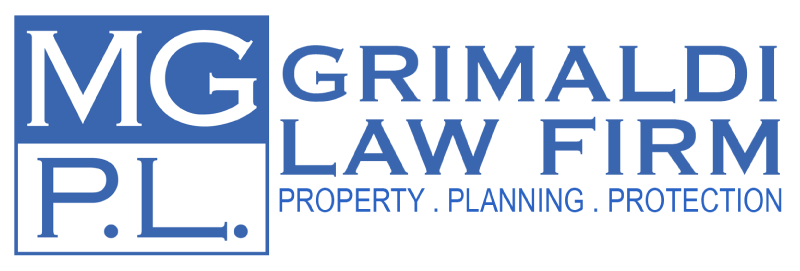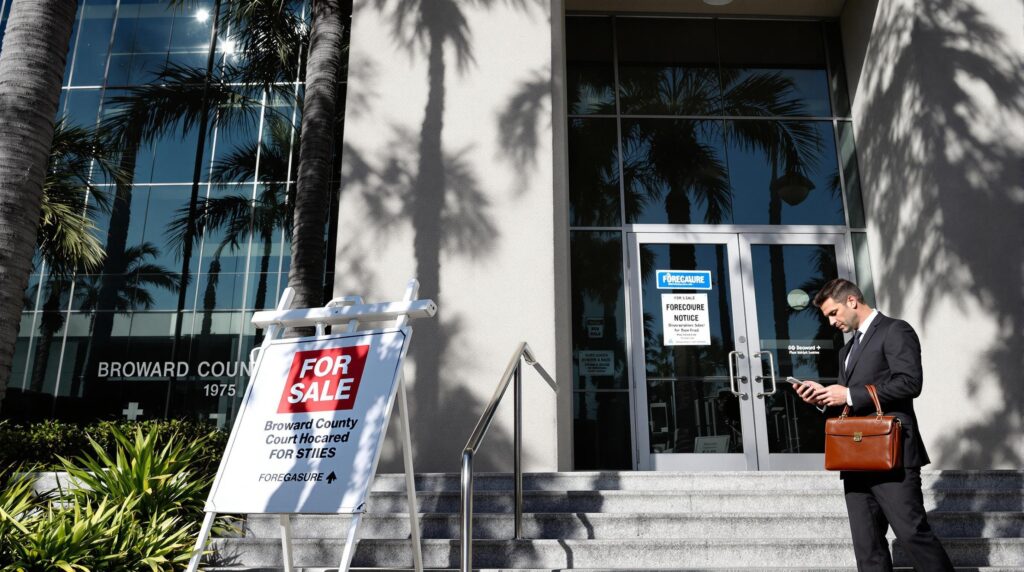Real estate legal battles in Broward County focus on five main problems. People often fight over who owns what land and where property lines should be, usually because of unclear property papers. Building problems pop up when work is done poorly or doesn’t meet local rules. Fights between homeowners and their associations happen a lot, mostly about following community rules and paying fees. When people break their buying, selling, or building agreements – like hiding property problems – they end up in court. Money troubles, especially with home loans and foreclosures, round out the big issues as banks and homeowners clash over payments and paperwork. Knowing these typical problems helps people better handle Broward County’s tricky real estate world.
Key Takeaways
- Title and boundary disputes constitute a major portion of real estate litigation, requiring official surveys and extensive documentation.
- Construction defect claims involve lawsuits against builders for issues like water leaks, foundation cracks, and code violations.
- Homeowners Association conflicts frequently arise over rule enforcement, aesthetic guidelines, and fee-related disagreements.
- Contract breaches commonly involve undisclosed property issues and rental agreement violations, requiring written documentation for resolution.
- Foreclosure disputes center on loan ownership verification and procedural compliance, often involving loan modification requests.
Title and Boundary Disputes
Title and boundary fights in Broward County, Florida make up a big part of real estate court cases. These problems often come from different ways people read deeds, maps that don’t match up, and messy ownership histories. Many times, these fights start because property details are wrong, property lines overlap, or old records have mistakes. Getting a professional to check property records helps stop and fix these problems. They look at past ownership papers, debts tied to the land, and any limits on how the property can be used. When people disagree about property lines, they need official surveys as proof. These surveys show exact measurements and where property lines really are. People often fix these problems through legal actions to clear up who owns what, written agreements about property lines, and having judges decide property rights. To settle these cases, people usually need lots of paperwork, expert map makers to explain things in court, and a deep dive into old records to prove where property lines are and who really owns the land.
Construction Defect Claims
Construction problems lead to many lawsuits in Broward County when buildings have serious flaws, break building rules, or were built poorly. These problems can stem from bad building work, faulty parts, or mistakes in how the building was planned. When building problems show up, property owners often take legal action against builders, developers, and building designers. Many cases involve water leaks, cracked foundations, broken electrical systems, and heating or cooling problems. Building guarantees are also important – both written promises from builders and basic quality promises required by Florida law. To win these cases, owners need lots of proof, expert builders to testify, and a close look at how the building was made and what materials were used. People must file their claims within certain time limits set by Florida law, which change based on what’s wrong and when someone found the problem.
Homeowners Association Conflicts
HOAs and homeowners often clash in Broward County, leading to many lawsuits. The most common fights start when HOAs try to control how homes look, who should fix what, and when residents break the rules. Members also fight about who can vote, how board members get picked, and whether they can see HOA paperwork. Money issues cause many problems too, especially when HOAs raise fees or demand extra payments. Things get worse when HOAs put liens on homes or try to take houses away from owners who haven’t paid. These fights usually involve looking closely at HOA rules, Florida laws, and government guidelines. People try to solve these problems in different ways – through talks with mediators, private hearings, or going to court. When cases reach court, judges look at whether HOA decisions are fair and if they follow the law.
Contract Breach Cases
Contract disputes take up much of Broward County’s real estate court schedule. These cases often involve buyers, sellers, builders, and workers fighting over broken agreements. People commonly break contracts by hiding property problems, not doing what they promised, or making changes without permission. Many cases also deal with rental problems and trying to remove tenants.
| Common Contract Breaks | Main Solutions |
| Hiding Property Problems | Money Payment |
| Not Following Agreement | Force to Complete Work |
| Breaking Rental Rules | Remove Tenant/Pay Money |
| Breaking Building Contracts | Property Liens |
To win these cases, people need good paperwork, proper warning notices, and must follow Florida’s contract laws carefully. Courts look at how serious the contract break was, how much harm it caused, and if anyone tried to fix the problem before going to court. Recent court decisions show that having things in writing and keeping good records is key to enforcing contracts.
Foreclosure and Loan Disputes
Since the housing market crashed in 2008, Broward County has seen many legal fights over foreclosures and loans. These cases often pit lenders against homeowners who clash over missed payments, paperwork problems, and other issues. Many lawsuits focus on whether lenders can prove they actually own the loans, if they followed the proper steps to foreclose, and if they handled all the required paperwork correctly. Homeowners trying to avoid losing their homes often ask banks to change their loan terms, which can lead to fights over whether banks are following the rules for loan changes. Courts must sort through many detailed issues, like claims about lost paperwork, questions about who really owns the loan, and whether banks took all the required steps before foreclosing. They also deal with disputes about how notices were delivered, when banks demanded full payment, and how much money is actually owed based on changing interest rates and payment plans.
Property Insurance Litigation
Property insurance fights in Broward County make up many real estate court cases, often due to hurricane damage, water problems, and turned-down claims. Insurance companies and property owners clash when they disagree about what caused the damage or how bad it really is, leading to fights over what the insurance papers mean.
| Key Problems | Main Reasons | How They End |
| Saying No to Claims | What’s Not Covered | Legal Deal |
| Money Disagreements | Looking at Damage | Talks with Helper |
| Unfair Treatment | Slow Response | Judge’s Choice |
Most fights happen because people read insurance rules differently, especially about what’s covered and what steps to take after damage happens. People often argue about proving the damage, telling the insurance company in time, and how much repairs should cost. These cases usually need experts to show what caused the damage and figure out how much money it will take to fix things.
Zoning and Land Use Issues
Land use and zoning fights make up a big part of real estate lawsuits in Broward County. These battles often break out between people who own property, builders, and city officials over how land can be used and what limits apply. Many disagreements start when property owners and city rules clash. People ask for special permits or fight back against building rules. The most common issues are about how tall buildings can be, how many units fit on a piece of land, and what activities are allowed on the property. When builders want to change how land is used or get special permission for their projects, they often face pushback. To solve these problems, people must work through city rules and meetings. This means going to public discussions with zoning boards and city leaders. Finding answers requires looking carefully at local laws, state rules, and past court decisions about property rights and land use.
Frequently Asked Questions
How Long Does a Typical Real Estate Lawsuit Take in Broward County?
Real estate lawsuits in Broward County usually take between 8 and 24 months to finish. The time needed depends on how tricky the case is, what paperwork the court needs, how many legal steps are taken, how long it takes to gather evidence, and whether the parties try to reach an agreement before going to trial.
What Are the Average Legal Fees for Real Estate Litigation Cases?
Real estate court cases usually cost between $250-500 for each hour of a lawyer’s time. The total bill can run from $10,000 to $50,000, depending on how tricky the case is and how long it takes to resolve.
Can I Represent Myself in Broward County Real Estate Court?
You can represent yourself in Broward County real estate court, but it’s very risky. The court system has many tricky rules about real estate, lots of paperwork to file, and strict deadlines to meet. Most people who go to court without a lawyer struggle to handle their case well, which is why getting a real estate lawyer is usually the smarter choice.
Do Real Estate Litigation Cases Usually Settle Before Trial?
Most real estate lawsuits end before going to trial, with about 9 out of 10 cases reaching an agreement through talks between the parties. This happens because people weigh the costs and risks of a full trial against the benefits of settling early.
Which Broward County Courthouse Handles Most Real Estate Litigation Matters?
The main Broward County Courthouse in Fort Lauderdale deals with most real estate lawsuits. You’ll find the Civil Division on the third floor, where people file their real estate cases.
Conclusion
Real estate lawsuits in Broward County cover many different legal problems that need expert help. These include fights over who owns property, problems with how homes were built, disagreements with homeowners’ associations, and battles over foreclosures. To win these cases, you need strong paperwork and a clear plan. Lawyers must know the rules – from local laws to state and federal ones. Because property cases are tricky and Broward County’s housing market keeps changing, having a good lawyer is key to getting the best results. If you’re facing real estate legal challenges, Real Estate Law Fl is ready to protect your property rights and guide you through every step of your case.

